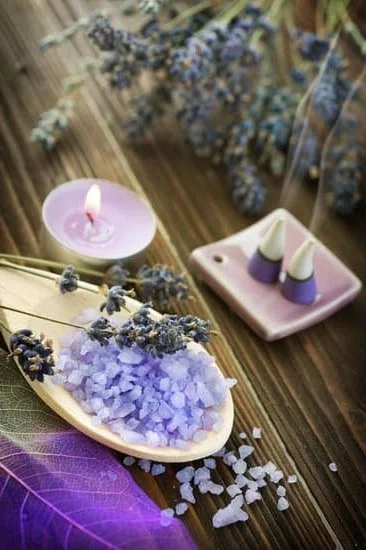Can aromatherapy diffusers hurt birds? Aromatherapy diffusers are popular for their ability to disperse essential oils and create a pleasant environment for humans. However, the use of these diffusers can have potential implications for pets, particularly birds. Understanding the impact of aromatherapy diffusers on avian companions is important for responsible pet ownership.
Aromatherapy diffusers are devices that release essential oils into the air, offering various benefits such as relaxation, stress relief, and improved sleep quality for humans. While these devices can enhance the well-being of individuals in a household, it’s essential to consider how they may affect other members of the family, including pet birds. The diffusion of certain essential oils can potentially harm birds and compromise their health.
Some specific essential oils used in aromatherapy can be harmful to birds if they are diffused into the air. The inhalation of these oils by birds can lead to respiratory issues, neurological problems, and other health complications.
As a result, bird owners need to be mindful of the potential risks associated with using aromatherapy diffusers in homes where pet birds reside. It’s crucial to understand which essential oils pose a threat to avian companions and take measures to ensure their safety and well-being.
The Risks of Aromatherapy Diffusers for Birds
The use of aromatherapy diffusers has become increasingly popular due to their ability to disperse essential oils into the air, creating a pleasant and relaxing atmosphere for humans. However, it is important for pet owners, especially those with birds, to be aware of the potential risks that these devices can pose to their feathered friends.
Essential oils that are considered safe for humans can be harmful and even toxic to birds. When diffused into the air, these oils can be inhaled by birds, leading to respiratory issues and other health problems. Additionally, birds are known to have sensitive respiratory systems, making them more susceptible to the negative effects of diffused essential oils.
In fact, certain essential oils have been linked to a range of health issues in birds, including difficulty breathing, organ failure, and even death. It is crucial for bird owners to understand the specific oils that can be harmful to their pets in order to avoid exposing them to any potential dangers from aromatherapy diffusers.
| Essential Oil | Risks |
|---|---|
| Tea Tree Oil | Can cause respiratory issues and neurological problems |
| Pine Oil | May lead to irritation of the respiratory tract and difficulty breathing |
| Lemon Oil | Has been associated with liver damage and skin irritation in birds |
Case Studies and Research Findings
Research has shown that the use of aromatherapy diffusers can have negative effects on birds, particularly when certain essential oils are utilized. A study conducted by avian veterinarians found that diffused essential oils such as tea tree, eucalyptus, and peppermint can be harmful to birds when inhaled. When birds are exposed to these oils, they can experience respiratory issues, central nervous system depression, and even organ damage. This highlights the potential danger that aromatherapy diffusers can pose to pet birds.
In a case study published in the Journal of Avian Medicine and Surgery, a parrot owner reported that her bird experienced difficulty breathing and exhibited unusual behaviors after she began using an aromatherapy diffuser in their home. After consulting with an avian veterinarian, it was determined that the diffused essential oils were causing respiratory distress in the bird. Subsequent removal of the diffuser from the home resulted in a significant improvement in the bird’s health.
Another instance involved a cockatiel owner who noticed their bird displaying signs of lethargy and decreased appetite after using an aromatherapy diffuser with lavender oil. Upon seeking advice from an avian veterinarian, it was discovered that the lavender oil was negatively impacting the bird’s behavior and overall well-being. These cases serve as real-life examples of how aromatherapy diffusers can hurt birds if not used carefully and with knowledge of potential risks.
These findings emphasize the importance for bird owners to educate themselves about the specific essential oils that can be harmful to their pets before using aromatherapy diffusers in their homes. Additionally, consulting with avian veterinarians or experts in aromatherapy is crucial for ensuring a safe environment for pet birds while still enjoying the benefits of aromatherapy for humans.
Common Essential Oils to Avoid
Essential oils have become increasingly popular for their holistic benefits, but it’s important to note that not all of these oils are safe for our feathered friends. When using aromatherapy diffusers in homes with pet birds, it’s crucial to be mindful of the specific essential oils that can pose a risk to their health. Here are some common essential oils to avoid when you have pet birds:
- Tea Tree Oil: This potent oil is known to have adverse effects on birds’ respiratory systems and can lead to breathing difficulties.
- Pine Oil: The strong scent of pine oil can cause respiratory irritation and other health issues for birds when inhaled.
- Eucalyptus Oil: Similar to tea tree oil, eucalyptus oil can also cause respiratory distress and should be avoided around birds.
These essential oils may offer benefits for humans, but they can be harmful or even toxic to our avian companions. It’s important for bird owners to be aware of the potential risks associated with diffusing these oils in their homes.
In addition to the essential oils mentioned above, there are several more that can pose a danger to pet birds. Some other essential oils to avoid include citrus oils, cinnamon oil, and clove oil. These oils can cause a range of adverse effects in birds, from skin irritation to liver damage. Before using any essential oil in an aromatherapy diffuser, bird owners should carefully research and ensure that they are safe for their avian pets.
Ultimately, understanding which essential oils are harmful to birds is crucial for creating a safe environment for both humans and pets. By being mindful of the potential risks associated with certain essential oils, bird owners can prioritize the health and well-being of their feathered companions while still enjoying the benefits of aromatherapy in their homes.
Safe Alternatives for Bird-Friendly Aromatherapy
When it comes to enjoying the benefits of aromatherapy while keeping your pet birds safe, there are alternative methods and bird-friendly essential oils that can be used. Here are some safe alternatives for bird-friendly aromatherapy:
- Bird-safe essential oils: Some essential oils are safe for birds and can even provide health benefits for them. These include lavender, chamomile, and rose geranium. These oils can be diffused in small amounts and with caution to ensure the well-being of your feathered friends.
- Herbal sachets: Instead of using a diffuser, consider creating herbal sachets filled with bird-safe herbs and flowers. These sachets can be placed in different areas of your home to naturally release pleasant scents without the use of essential oils.
- Fresh flowers and herbs: Bringing fresh flowers and herbs into your home not only adds beauty but also provides natural aromatherapy benefits. Birds can benefit from the presence of fresh, bird-safe plants such as basil, mint, or calendula.
It’s important to remember that while these alternatives offer a safer way to enjoy aromatherapy around birds, it’s still crucial to monitor their behavior and well-being when introducing new scents into their environment. Additionally, always consult with avian veterinarians and experts in aromatherapy for guidance on using alternative methods safely around pet birds. By taking these precautions, you can create a harmonious living environment where both humans and birds can enjoy the benefits of aromatherapy safely.
Tips for Bird Owners Using Aromatherapy Diffusers
Bird owners who enjoy the benefits of aromatherapy in their homes must be mindful of the potential risks that diffusers can pose to their feathered friends. While aromatherapy can promote relaxation and wellness for humans, it is important to consider the well-being of pet birds when using essential oils around them. In this section, we will explore some tips for bird owners to safely use aromatherapy diffusers while keeping their avian companions in mind.
Guidelines for Safe Usage
When using aromatherapy diffusers in a home with pet birds, it is crucial to exercise caution and follow certain guidelines to minimize any potential harm. This includes ensuring that the diffuser is placed in a well-ventilated area where birds have the option to move away from the scent if they so desire.
Additionally, it is advisable to use the diffuser in a room separate from where the birds are housed, allowing them to retreat to a different space if needed.
Choosing Bird-Friendly Essential Oils
To mitigate any risks associated with diffused essential oils, bird owners should select oils that are known to be safe for avian companions. Certain essential oils such as lavender, chamomile, and bergamot are considered safe for use around birds when used in moderation and proper dilution. It is important to research and verify which essential oils are safe for birds before using them in an aromatherapy diffuser.
Observing Bird Behavior
Monitoring the behavior of pet birds when using an aromatherapy diffuser can provide valuable insight into their comfort levels with the scents being dispersed. If a bird exhibits signs of distress or discomfort such as increased vocalization, agitation, or respiratory issues, it may be necessary to discontinue using the diffuser altogether or switch to bird-safe alternatives. Paying close attention to how birds react can help prevent any potential harm from occurring.
By taking these precautions and remaining vigilant about the impact of aromatherapy on pet birds, owners can create a harmonious living environment that prioritizes both human wellness and avian health. It is essential for bird owners to educate themselves on safe practices for using aromatherapy diffusers and seek professional advice when needed to ensure the well-being of their feathered companions.
Seeking Professional Advice
Importance of Expert Consultation
When it comes to the well-being of pet birds and the use of aromatherapy diffusers, seeking professional advice is crucial. Avian veterinarians and experts in aromatherapy can provide valuable insights and guidance on how to safely incorporate essential oils into a bird-friendly environment. These professionals can offer personalized recommendations based on the specific needs and sensitivities of individual bird species, ensuring that potential risks are minimized and the health of the birds is prioritized.
Consulting With Avian Veterinarians
Avian veterinarians have in-depth knowledge of the physiological and behavioral characteristics of birds, as well as an understanding of how they may be affected by environmental factors such as aromatic substances. Bird owners should consult with these specialized veterinarians to assess any potential risks associated with using aromatherapy diffusers in homes with pet birds.
Additionally, avian veterinarians can provide guidance on identifying early signs of discomfort or illness in birds that
Expert Resources for Informed Decision-Making
In addition to seeking direct consultation, bird owners
By staying informed about the potential risks and best practices related to aromatherapy for birds, bird owners
Conclusion
In conclusion, it is important for bird owners to be mindful of the potential risks that aromatherapy diffusers can pose to their avian companions. While these products offer a range of benefits for humans, they can also have detrimental effects on birds if not used carefully.
Certain essential oils commonly used in aromatherapy, such as tea tree oil and eucalyptus oil, can be toxic to birds when diffused into the air. This raises concerns about the impact of aromatherapy diffusers on avian health and well-being.
As such, bird owners should prioritize the safety and well-being of their feathered friends when using aromatherapy diffusers in their homes. It is crucial to familiarize oneself with the list of essential oils that are known to be harmful to birds and avoid using these oils in diffusers or other aromatherapy products. Additionally, seeking guidance from avian veterinarians and experts in aromatherapy can provide valuable insight into safe practices for utilizing aromatherapy around pet birds.
Finding a balance between enjoying the benefits of aromatherapy and ensuring the health and safety of pet birds is paramount. Bird owners can explore alternative methods of aromatherapy that are safe for their avian companions, such as using bird-friendly essential oils or opting for non-diffuser-based techniques.
By being informed and proactive in creating a harmonious living environment for both birds and humans, bird owners <can aromatherapy diffusers hurt birds> while still enjoying the benefits of aromatic therapy practices.
Frequently Asked Questions
Are Aroma Diffusers Safe for Birds?
Aroma diffusers can pose a risk to birds due to their sensitive respiratory systems. The essential oils in the diffusers can release airborne chemicals that may be harmful to birds when inhaled.
Are Aromatherapy Diffusers Safe for Animals?
Aromatherapy diffusers can also be risky for animals, especially those with respiratory issues or sensitivities. The essential oils and chemical compounds released by the diffuser can irritate or harm an animal’s respiratory system.
Are Aromatherapy Diffusers Safe?
While aromatherapy diffusers are generally safe for humans when used properly, caution should be taken around pets and birds. It’s important to consider the potential impact of the airborne chemicals on the respiratory systems of animals before using a diffuser in a shared space.

Are you looking for a natural way to improve your health and wellbeing?
If so, aromatherapy may be the answer for you.





